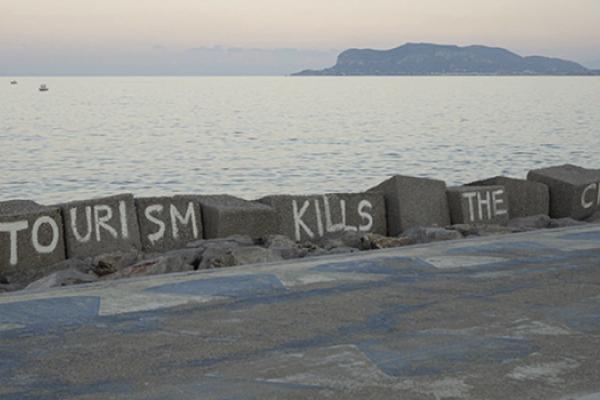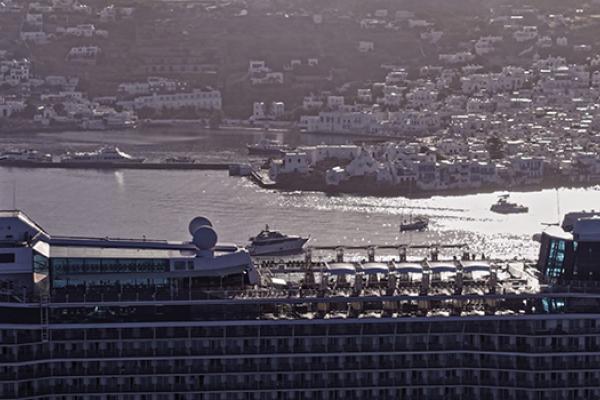The influx of foreign private investment funds, the increase in low-cost flight routes from the northern shore of the Mediterranean, and the growing presence of short-term rental platforms like Airbnb are making it excruciating for local residents to continue living in these areas, leading to the displacement of long-time residents and the reshaping of neighbourhoods.
In Tunis, the severe economic crisis affecting the country has deeply undermined the right to housing for large segments of the population. To this already fragile situation comes the slow but relentless rise of mass tourism, which is likely to have even more profound effects. The spread of short-term rentals owned by foreign and local investors in an unregulated market, designed primarily for a European and international clientele, is already evident and is further exacerbating the housing crisis, both in residential neighborhoods and in historic areas such as the medina.
Marrakech is Morocco’s tourist gem. Every year, the traditional riads of the medina fill with millions of visitors from all over the world. Over the years, the old quarter has been transformed by businesses catering exclusively to an international clientele and by the steady rise of foreign investments seizing the opportunities offered by tourism. The consequences have been a complete urban upheaval of the city and thousands of residents left without a home due to soaring housing prices.
In Istanbul, the negative effects of touristification and gentrification are changing the social structure of Balat, a historic neighborhood on the Golden Horn. The influx of tourists from the Global North in search of the perfect Instagram photo of its colorful houses has opened the door to foreign and local investments, leading to the opening of new businesses only meant for tourists. At the same time, the exponential increase in the number of houses listed on short-term rental platforms and rental prices has forced local people out of Balat, while granting profits to only a handful of people.
In Malta, our investigation reveals that the multi-million short-lets market is largely managed by a handful of local property management companies. In some locations, nearly half of active short lets lack a proper licence, which means they are not contributing to local services. As owners and property managers profit, they leave towns to struggle with heaps of rubbish, which disrupt waste separation schedules, and populations exhausted by noise and unruly behaviour. Airbnb, a major driver of these trends, ignored our requests for comment. Booking.com said that local authorities’ concerns are being tackled.
On the southern shore of the Mediterranean, within a fragmented legal framework, these dynamics have ended up serving only a narrow social niche — leaving behind rising inequalities, depleted local life, and no redistribution for the residents of Malta, Istanbul, Marrakech, and Tunis.
Impact
The reporting on the situation in Malta had a significant impact. Initially, the investigation was published on one of Malta's leading social media platforms and one of the journalists was interviewed on a national radio station about the findings. Subsequently, the data sets compiled by the reporting team were raised within a Parliamentary Standing Committee, after Amphora Media discussed the data with an MP. On 5 November, one month after publication, the government announced proposals to reform the short-term rental sector. These include creating ‘short-term’ rental zones, limiting the number of guests per property, and blacklisting unlicensed operators. At the time of publication (30 September), Amphora Media also reached out to the Deputy Prime Minister, Ian Borg, who is the Minister of Tourism, with the data to discuss the issue. The proposals are currently open for public consultation. Over a month after the investigation came out, a Maltese MEP produced a draft report for a European Parliament committee titled ‘On enhancing connectivity, preserving cultural heritage, and driving local excellence in European tourism: destination management and regional tourism growth’. The document addresses short-term lets and uses descriptions that match the journalistic findings.
Photo by Giovanni Culmone












